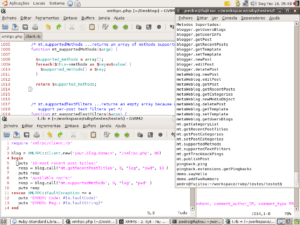Posted inWeb application security
Protect WordPress from brute-force XML-RPC attacks
Secure WordPress against XML-PRC attacks. This post gives you some insights about how you can create an IP whitelist for xmlrpc.php, on Windows Server and Linux Apache (web.config and .htaccess). And how you can block access to xmlrpc.php file.


